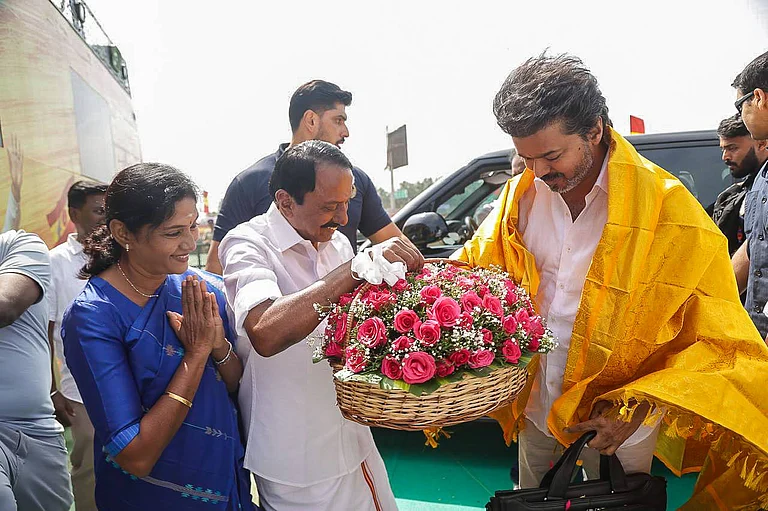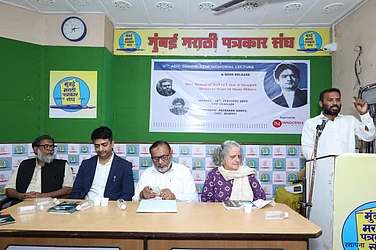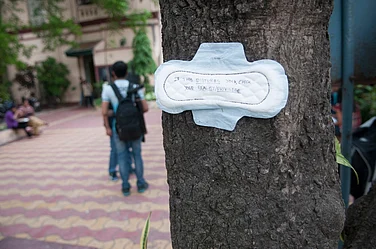Hekhani Jakhalu of the Nationalist Democratic Progressive Party (NDPP) scripted history on Thursday by becoming the first ever woman MLA in Nagaland.
Jakhalu won the Dimapur III assembly seat in the Nagaland assembly elections. She defeated her nearest rival Azheto Zhimomi of the Lok Janshakti Party (Ram Vilas) by 1,536 votes, according to the the Election Commission of India (ECI).
In the past six decades, Nagaland had the unique distinction of having no woman MLA. The trend was expected to break this year as four major parties had fielded women candidates.
Who is Hekhani Jakhalu, Nagaland's first woman MLA?
Hekhani Jakhalu is the newly-elected MLA from Dimapur III assembly seat in Nagaland. She is the first woman MLA elected to the Nagaland assembly.
Jakhalu, 48, contested the Nagaland assembly election as a candidate of the Bharatiya Janata Party (BJP) ally NDPP. She is a resident of Toluvi village in Dimapur district.
Jakhalu is a lawyer-turned-social entrepreneur. She is the founder of YouthNet, an organisation dedicated to youth empowerment in Nagaland.
Jakhalu holds a Master of Laws degree from the University of San Francisco's School of Law, according to her affidavit with the ECI. She is also an alumnus of the University of Delhi's Lady Shri Ram College and Law Faculty, according to her biography on YouthNet's website.
It further says that Jakhalu also worked at the United Nations in the United States and practiced law at the Delhi High Court and Supreme Court of India.
The website says, "Hekani Jakhalu is a lawyer by profession. She has an LLM degree from University of San Francisco and trained xtensively at Harvard University, American University in Washington D.C., Amnesty International- San Francisco and the United Nations Headquarters in New York...Hekani worked both at the Supreme Court of India and Delhi High Court. After quitting as a Partner of a New Delhi law firm in 2005, she returned home to Nagaland to start YouthNet with a group of friends of young professionals, believing in the power of ordinary people to make extraordinary change."
For her work, Jakhalu has been awarded with Nari Shakti Puraskar Award 2018 and Schneider Electric Prerna Award in 2021, according to the YouthNet website.
Women in Nagaland politics
In the past six decades, Nagaland did not elect any woman as an MLA. That was expected to change this time as four major parties had fielded women.
Besides Jakhalu, the other women candidates were Salhoutuonuo Kruse of NDDP, Kahuli Sema of BJP, and Rosy Thompson of Congress.
As per latest trends on ECI website, Kruse of NDPP is leading from Western Angami seat and BJP's Sema is also leading from Atoizu constituency.
Christ University researcher Sentsuthung Odyuo earlier told Outlook that while caste and other discriminatory practices for women were absent in the Naga Hills, there existed different social structures based on age, gender, clan rank, and the status achieved by feasts or warfare skills.
He said, "The traditional institutions around which the Naga social and political life revolves have never recognised the rights of women as primary decision-makers...Male dominance and patriarchal values remain a big obstacle in Naga society. It limits their voice and agencies by purposefully preventing women from sharing power as equals with men."
Outlook noted that while the Naga society might be relatively liberal, the place of women traditionally was within the domestic sphere whereas the men conducted themselves publicly.
Outlook's Rakhi Bose noted, "In Nagaland, women enjoy more equality and importance than in non-tribal societies. But even if Naga societies have not generally oppressed women in a significant way and women are seen as equal members of the community vis a vis men, traditional Naga laws and customs clearly assign gender roles and gendered responsibilities. Women are seen as the head of the domestic sphere, keepers of the hearth and often in charge of handling home economics and treasury. But the outside world is seen as the preserve of men. Though important as builders of the Naga community, women played no direct part in political affairs."


























